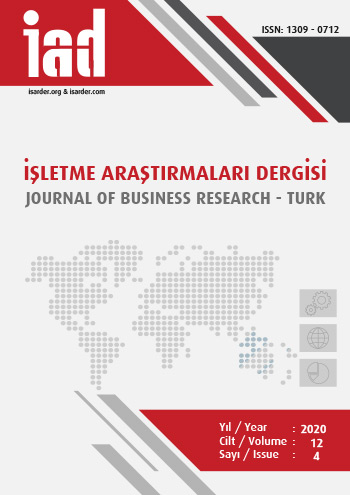Kriz Dönemlerinde Konaklama Sektörü İşletmelerinin Müşteri İlişkileri Yönetimine Yönelik Uygulamaları: Türkiye-Rusya Uçak Krizi
Practice for the Customer Relationship Management in Hospitality Sector Business Crisis: Crisis Turkey-Russia Aircraft
Author(s): Jennet Jumayeva, Cemalettin AktepeSubject(s): Business Economy / Management, Marketing / Advertising, Tourism
Published by: Orhan Sağçolak
Keywords: Customer Relationship Management; Crisis Management; Hospitality Industry;
Summary/Abstract: Purpose – The aim of the study is to reveal what the measures taken within the scope of "customer relationship management" within the marketing efforts of the enterprises operating in the accommodation sector during crisis periods. This objective comes within the scope of Turkey, not previously found or could not come due to the crisis in Turkey, also 353 Russian tourists who want to come to the talks in Turkey and Russia have been made. Information was collected from the questionnaire during face-to-face interviews. Regardless of the cause of the crisis, it has been concluded that especially tourists intend to continue their holiday habits, and approaches differ according to demographic characteristics. Design/methodology/approach: The study is built on quantitative data collection. There are different forms of quantitative research. This research covered exploratory correlational research method has been implemented, and accordingly built in Russia, surveys of Russian tourists who want to come, or come to Turkey through this crisis in the customer associated with the implementation of accommodations Operator in Turkey scales formed on behalf uncover the effect of these practices were applied. Chi-square test was applied to find out what the differences are between variables and whether the difference between observed and expected frequencies is significant by using SPSS 21 package program. Findings: According to the findings obtained in this study, "Flight of the crisis known as" crisis process, methods and processes for the arrival of tourists to Turkey has changed considerably. The study especially focused on whether demographic variables make a difference in their relationships with sub-variables of customer relationship practices. It is observed that all of the demographic variables in particular make a difference in the "customer acquisition" process. Another important finding is that the type of institution (public / private sector) Russian tourists work for creates a difference between sub-variables of customer relations practices. Discussion: During crisis periods, differences have emerged between the "customer retention" subvariable, which is one of the subtitles of customer relations management of hotel businesses, and all demographic variables included in the entire research section. In other words, gender, educational status, institution and marital status create different perceptions in customer retention practices. This situation is actually similar to many studies predicted in the literature. It seems easier to attract a customer to the business than to gain that customer and show loyalty by deepening. This situation, which is not in crisis situations, is also valid in crisis processes. A striking result is that there is a significant difference in all sub-dimensions of customer relations with the company they work for. Here, the fact that customers work in a public institution creates perception differences among private sector employees. The crisis discussed within the scope of the study is a political crisis. In the literature, crises have causes such as economic, legal, international or natural disasters. Therefore, it should be regarded as normal that customer relations practices differ according to the causes of the crisis and the sector in which the research is conducted. Researchers should revise subvariables by taking these variables into consideration.
Journal: İşletme Araştırmaları Dergisi
- Issue Year: 12/2020
- Issue No: 4
- Page Range: 4449-4465
- Page Count: 17
- Language: Turkish

